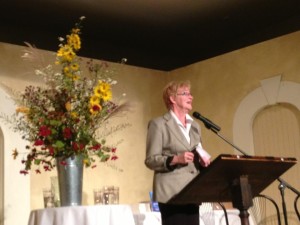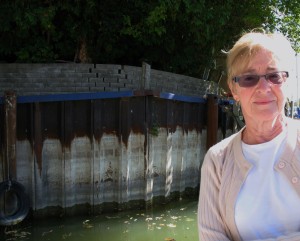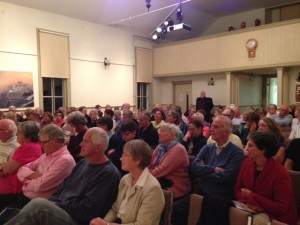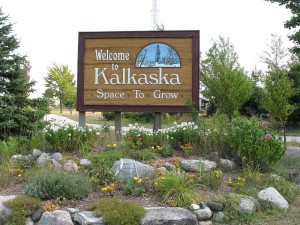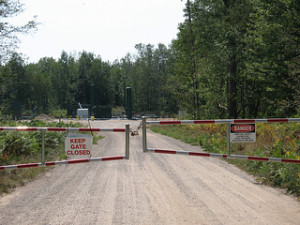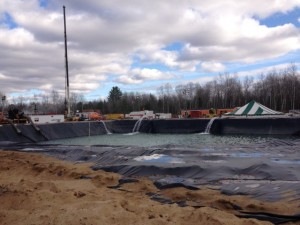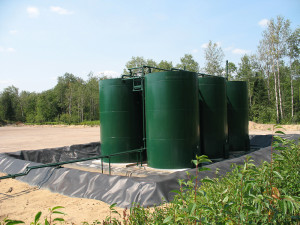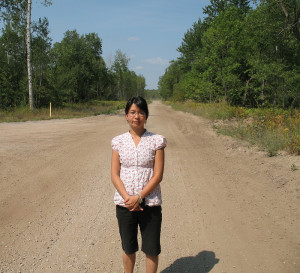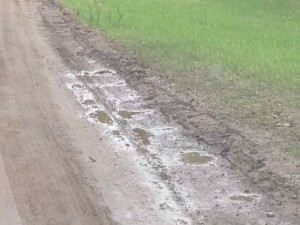

Jim Olson is FLOW’s Founder, President, and Legal Advisor
Maude Barlow’s latest, “Whose Water Is It Anyway” is hot off the press
Photo courtesy Council of Canadians
By Jim Olson
It took me just a few hours to finish reading Maude Barlow’s incisive, inspiring new book, Whose Water Is It Anyway?: Taking Water Protection into Public Hands (ECW Press, 2019). This is not new territory for Maude. She’s a world water policy guru and activist for the protection of the human right to water, the war against the schemes by the corporate elite to privatize and control water, and the fight to sustain water’s integrity in the watersheds where it flows. In 2002, she published Blue Gold with Tony Clark to go after global corporate thefts of water by taking over public water supplies or selling off public water in bottles. In 2007, she released Blue Covenant, enshrining the inherent obligation to assure the human right to water for people’s access to affordable safe water for all; and in 2015, she wrote Blue Future: Protecting Water for People and the Planet Forever, in which she not only championed the human right to water, but called on governments and people to recognize the duty to care for the water on which the right to water and all life depends.
Her new book, Whose Water Is It Anyway, a convenient pocket-sized paperback, tells the story behind her life’s work. It was ignited when in the 1980s she glimpsed the under-the table hand of a widespread corporate scheme to parade as champions of the free market that would provide water to meet the needs of people everywhere. The scheme was actually to control the world’s sources and delivery systems of water. Her new book combines her story and the stories of many others facing blows from the corporate world order that cut off drinking water, metered the wells of peasants, or robbed residents and watersheds of the flow of freshwater to convert water into bottles at publicly subsidized massive private gain.
She hits the highs and lows—the death of a young man in Bolivia over a corporate takeover of the water of the peasants of Cochabamba, the conversion by Nestlé and other bottled water companies of the right to use water into the right to sell water on the private market at exorbitant profits. Then she traces the global awareness and growing movement that in the past 30 years has spread throughout the world, and raised a shield against the private ownership and ironfisted clench on the world’s water taps. Her story could have ended in 2010, when her life’s work, and the work of water warriors around the world—including the Blue Planet Project, Council of Canadians, Food and Water Watch, and Uruguay’s National Commission for the Defense of Water—culminated a decade of dedicated work to finally see the United Nations enact resolutions in 2010 declaring the Human Right to Water and Sanitation.
It would have been enough for Maude to tell this story, in a digestible, accessible paperback, but that wasn’t enough. Everything she writes is about her life, the conflicts over water, and the many unsung heroes on the front lines, which highlight the water crisis we face through privatization and waste of our most precious commons. The work is not done, the awareness and movement should be as much a part of quality of life, health, and dignity, and life itself. No, it wasn’t enough to stop with the success, but to chart the next steps she sees as essential, ones that are already taking root across the world—Blue Communities.
The Blue Communities movement is a citizen, grassroots, local movement that shifts the understanding of the sustainability of a community, its quality of life and economy on three basic principles: 1. Water is a commons in which everyone has a human right for drinking, health, and safety; 2. Water, including local public water infrastructure, is public, and must forever remain a commons, preserved for present and generations to come—a commons held in public trust, as FLOW has envisioned and worked for over the past 10 years; and 3. that natural water sources—our streams and lakes and groundwater—shall not be privatized by ownership or control, and public water should not be taken for free as bottled water, or the private takeover and control of access to public water supplies and infrastructure. Each local city or local rural government in the Blue Communities program adopts a resolution centering itself and its future on sustaining water for life, water that is public, a commons, safe, and accessible, common and secure for all. Already, cities in Canada, Germany, Switzerland, Italy, France, Great Britain, and the United States have turned to resolutions and specific actions to commit to the Blue Community principles. The World Council of Churches, representing 590 million Christians, has declared itself a Blue Community.
Maude’s book is a combination of big picture world water crisis, personal story, water policy, conflicts, and solution. Here is a short readable book, a book you can slip into your purse, backpack, or even suit coat pocket, to take with you into the city hall, the boardroom, the classroom, or statehouse. It’s a story that should be read by everyone who cares about liberty, dignity, harmony, and the common good of people and planet. Here’s an author who walks the walk and helps show us the way forward. For further information on Blue Communities, water commons, privatization, and the public trust doctrine, visit The Council of Canadians or FLOW’s OUR20 Communities page.














